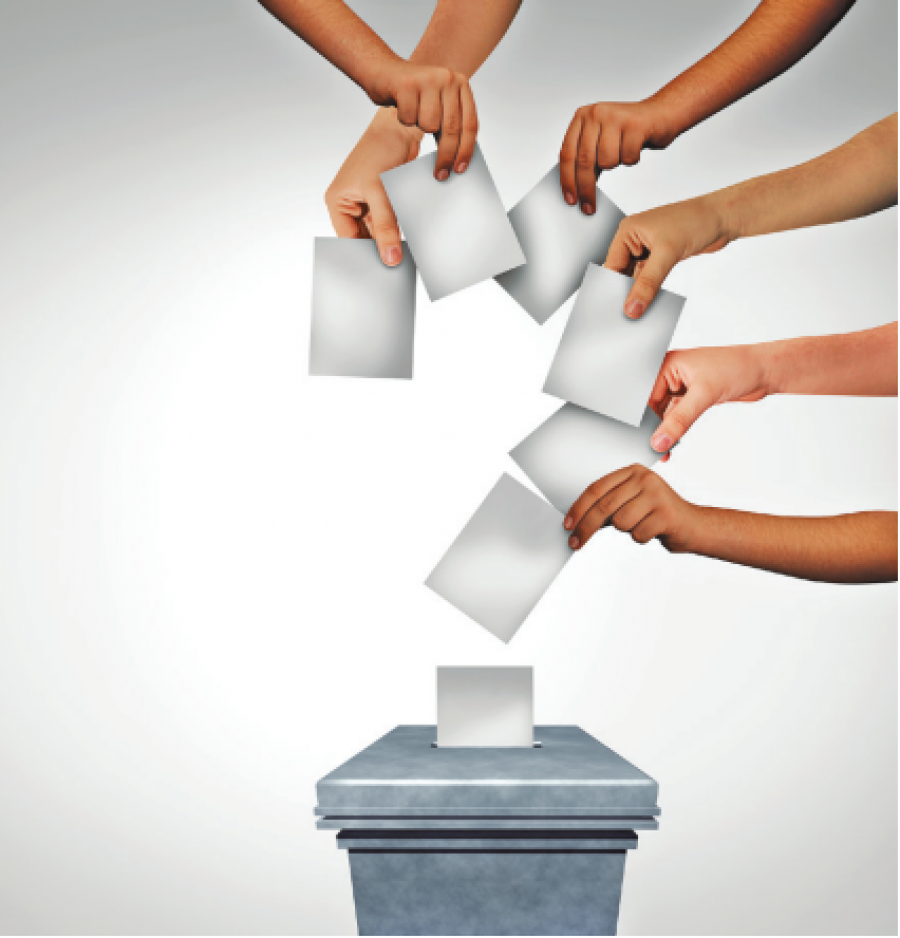National
Presidential election: When constitutional and legal terms clash
President and Vice President Election Act 2017 requires vote at least a month before the incumbent’s term ends.
Tika R Pradhan
With the Cabinet expanded and Speaker and deputy Speaker of the House elected, political parties are now focussed on the upcoming elections of the new President and Vice President.
Ramesh Lekhak, chief whip of the Nepali Congress, on Thursday raised a question on the need to amend the law governing the presidential election.
“The constitutional provision and the existing law on election of the President contradict each other. Therefore, the law needs to be amended,” Lekhak told reporters after the Speaker election on Thursday. “We must work on it.”
Lekhak said that the provisions in the constitution and the law have created confusion about the commencement of the newly-elected President’s tenure.
Article 63(1) of the constitution states that the term of office of the President shall be five years from the date on which he or she is elected.
But Section 4 of the President and Vice-President Election Act 2017 says the Election Commission should elect the President at least a month ahead of the expiry of the incumbent’s term.
If the new President and the Vice President are elected a month before the terms of the incumbents expire, they should assume office as soon as possible, as per the constitution, in the process shortening the term of the sitting President and Vice President by a month. If the same provision is continued, this one month reduction in the terms will be applicable to all those elected to the two offices.
Leaders of other major parties have also pointed to the contradiction in the constitutional and legal provisions.
Subas Nembang, who chaired the Constituent Assembly that drafted the constitution, said the issue was a serious one.
“The issue raised by Ramesh Lekhak regarding the term of the incumbent President and the election of the new one is serious,” UML vice-chair Nembang told the Post. “Parties should resolve it through discussions.”
CPN (Maoist Centre) leaders have also said the issue needs immediate attention from the government so that the applicable law can be amended at the earliest.
General Secretary of ruling Maoist Centre Dev Gurung said a constitutional problem could arise if the law governing the presidential election is not amended.
“If we can amend the law, the election can be held in mid-March. If not, the presidential election should be held before mid-February,” Gurung said. “As the constitution says the new President should assume office soon after election, a problem could arise.”
The issue comes to the surface at a time when major political forces are engaged in a tug of war to get the coveted post.
The Nepali Congress has been urging Prime Minister Pushpa Kamal Dahal to elect the new President through consensus among political parties. Dahal has responded to the proposal of the largest party positively, at least in public.
But CPN-UML chair KP Sharma Oli, who is Dahal’s key coalition partner, has rejected the idea outright saying that there has already been an agreement on giving the top position to his party.
Prime Minister Dahal also convened an all-party meeting on Tuesday to seek national consensus on the presidential election. But UML leaders believe the consensus proposal was brought with the ill intent of breaking the ruling coalition.
Some coalition leaders also claimed that the issue of contradiction in constitutional and legal provisions was raised with an intent to delay the election. They argued that Congress leaders were trying to buy time as they are on a ‘mission’ to break the coalition led by the UML and the Maoist Centre.
Constitutional experts say the constitutional provision prevails if any law contradicts it. Hence it would be desirable for Parliament to ensure uniformity in the constitutional and legal provisions.
“Parliament should ensure uniformity in compliance with the constitutional provision,” said Bhimarjun Acharya, an advocate and expert on constitutional law.
But not all constitutional experts find a problem with the legal requirement to elect the President and the Vice President a month in advance as that could prevent a constitutional hurdle arising in the event of the election not happening on time.
“The election to such a high-profile office should be held a month before so that the president-elect and the outgoing official have ample time to prepare,” said Bipin Adhikari, a professor and former dean at the Kathmandu University School of Law.
“The existing law on the presidential election was well thought out and there won’t be any problem. The new President can take the oath the day the outgoing one feels comfortable.”




 13.12°C Kathmandu
13.12°C Kathmandu














